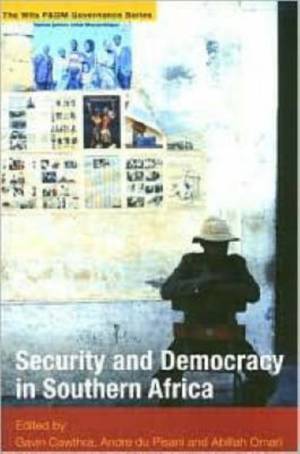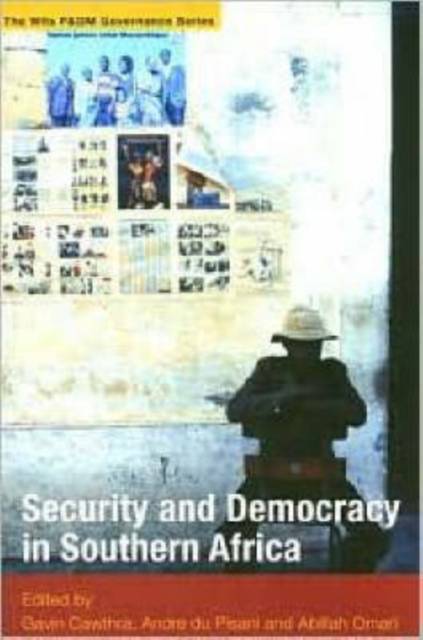
- Retrait gratuit dans votre magasin Club
- 7.000.000 titres dans notre catalogue
- Payer en toute sécurité
- Toujours un magasin près de chez vous
- Retrait gratuit dans votre magasin Club
- 7.000.000 titres dans notre catalogue
- Payer en toute sécurité
- Toujours un magasin près de chez vous
48,45 €
+ 96 points
Description
A study of the ambiguity of democratization and how it can generate violence
Southern Africa has embarked on one of the world's most ambitious security co-operation initiatives, seeking to roll out the principles of the United Nations at regional levels. This book examines the triangular relationship between democratization, the character of democracy and its deficits and national security practices and perceptions of eleven southern African states.Based on national studies conducted by African academics and security practitioners over three years, it includes an examination of the way security is conceived and managed, as well as a comparative analysis of regional security co-operation in the developing world.
The study concludes that democratization is ambiguous and uncertain and can in some cases generate violent conflict. Building a common security regime in southern Africa will require moving beyond regime solidarity. In particular, progress will mean building multinational institutions, entrenching democratic practices, drawing on civil society and integrating the southern African project with that of the African Union. The authors conclude with a set of policy recommendations that aim to strengthen both states and civil society within the framework of an emerging common security system.
Spécifications
Parties prenantes
- Auteur(s) :
- Editeur:
Contenu
- Nombre de pages :
- 304
- Langue:
- Anglais
- Collection :
Caractéristiques
- EAN:
- 9781868144532
- Date de parution :
- 15-11-07
- Format:
- Livre broché
- Format numérique:
- Trade paperback (VS)
- Dimensions :
- 163 mm x 237 mm
- Poids :
- 467 g







